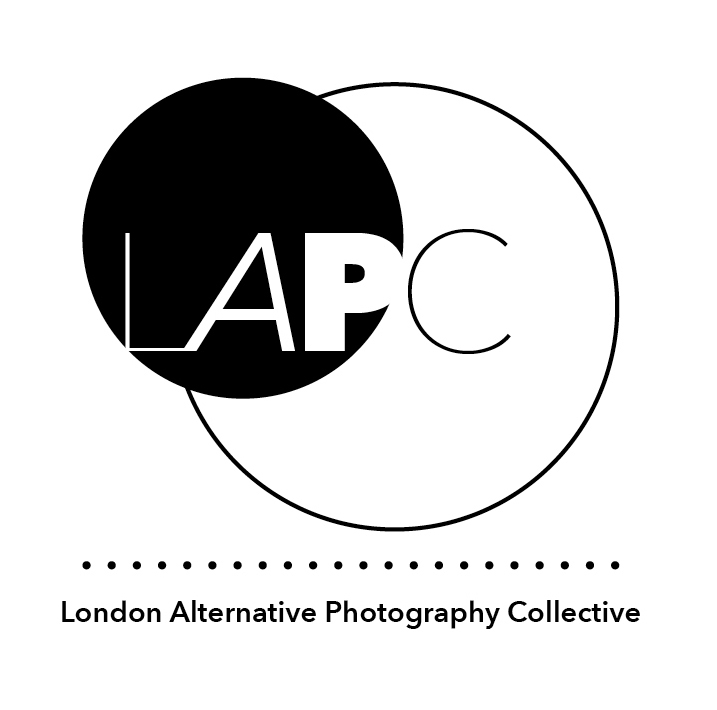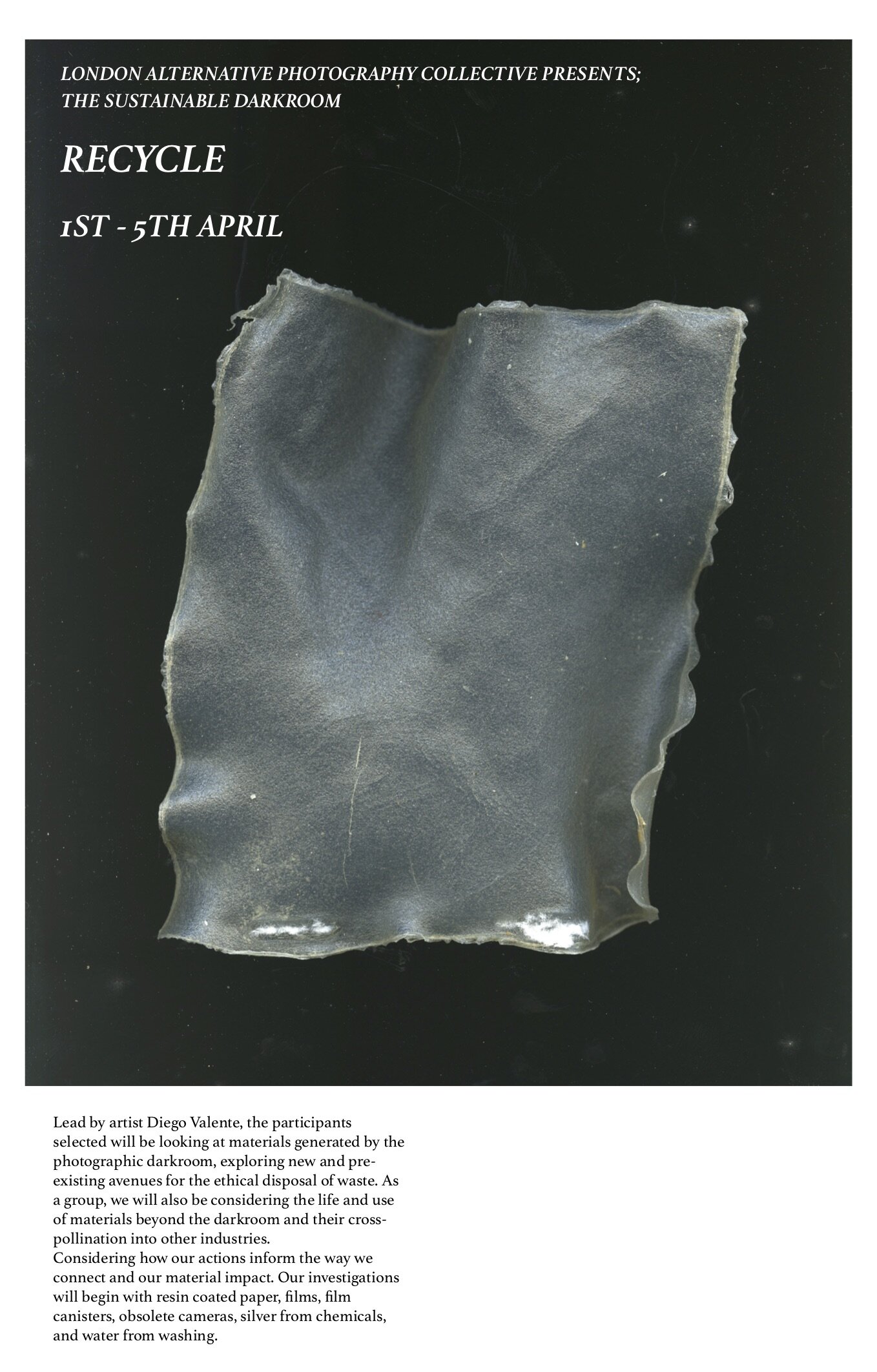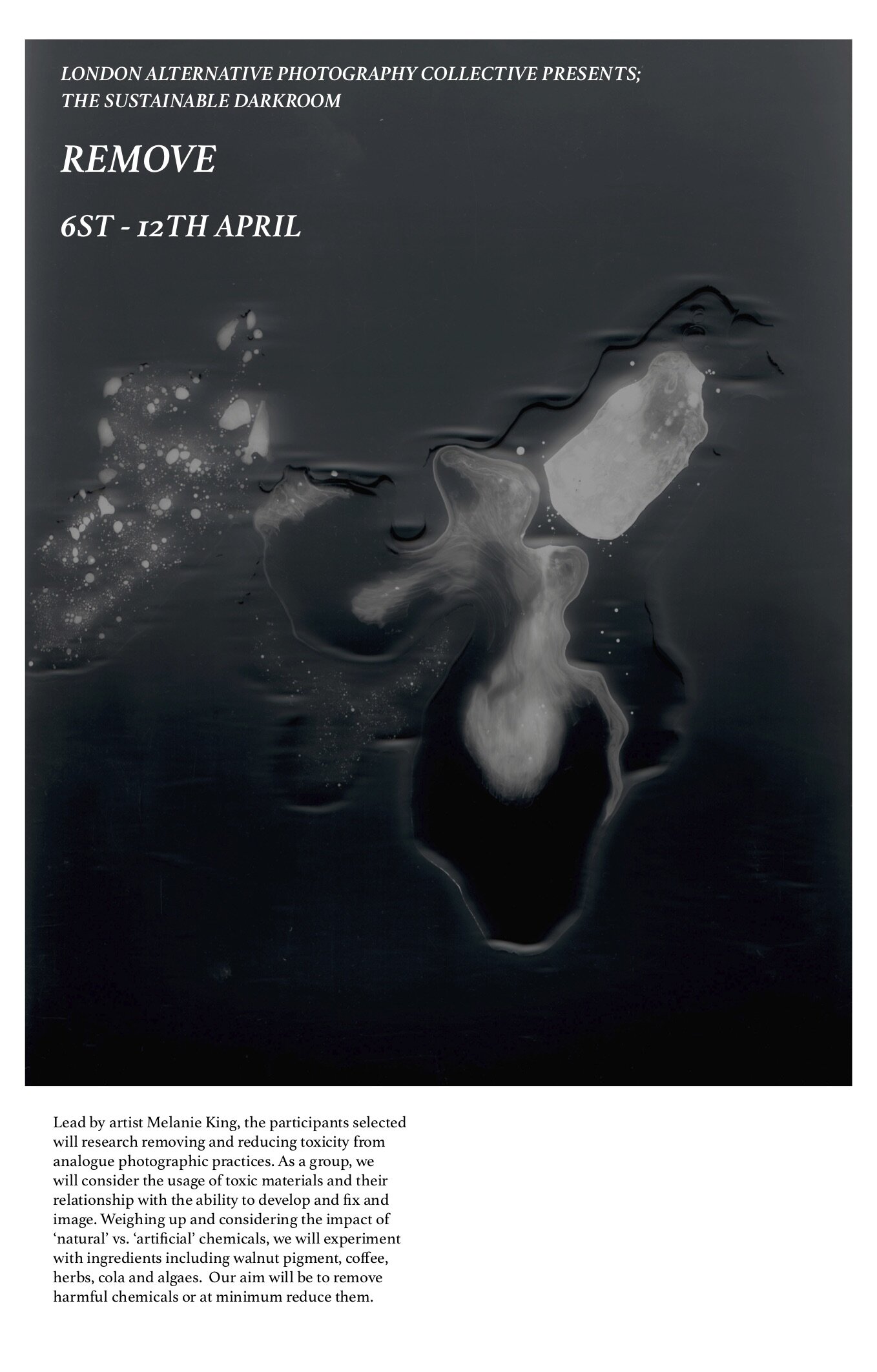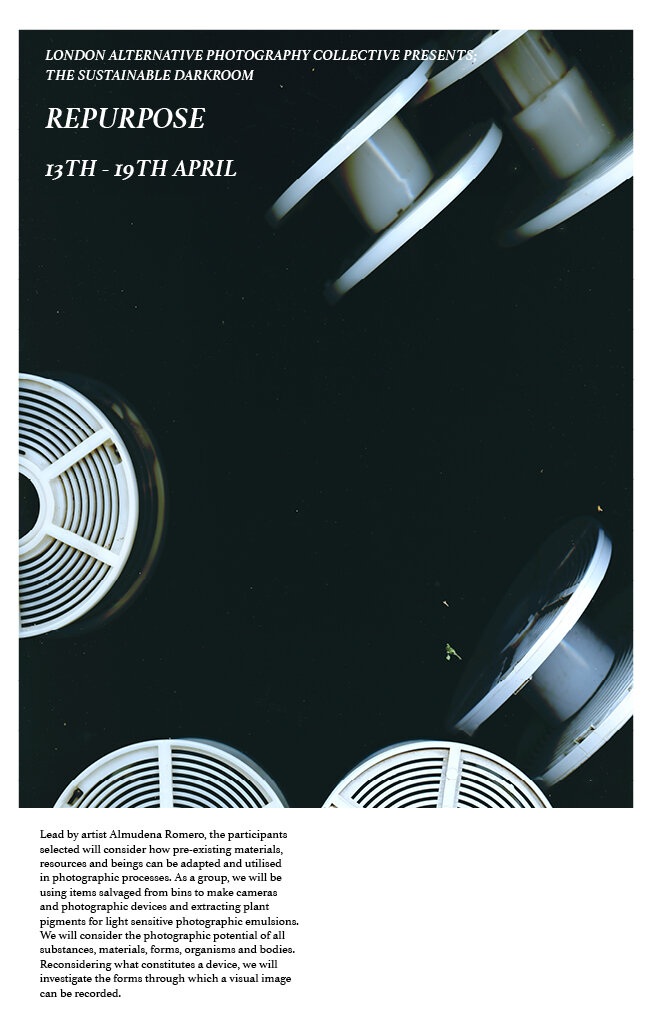Photographic Garden open call
Test. GROW. Change
This is a paid research and development opportunity with The Sustainable Darkroom.
DEADLINE: 8th August
We are looking for a small group to work with us on the creation of a photographic garden. The selected individuals will use the completed garden as a research space for developing new relationships between the garden and analogue photography. This could include, but is not limited to; making plant-based photographic developers, establish a water recycling and filtration system, or researching biodegradable, plant-based alternatives to celluloid and gelatin. We are also interested in proposals that make a conceptual link between the content and plant material used.
The individuals will have the support of relevant scientists, horticulturists and artists across the year to help and advise with aspects of the research.
This is a year-long project; running from September 2021 - September 2022.
At the end of each research initiative, there is an option for exhibiting at a local gallery space.
You will be expected to utilise the garden for a minimum of 12 days throughout 1 year, and contribute your research findings to The Sustainable Darkroom initiative.
Supported by East Street Arts, funded by Genesis Foundation.
APPLY:
Email the following to sustainabledarkroom@gmail.com with the headline: Submission to photographic garden
Your name
Where are you based
Any website or social media links
A short CV
A research proposal (maximum 500 words)
Terms and conditions:
If we feel that access to the Darkroom is being abused, then we have the right to limit your usage from therein.
Your artist's fee will be paid half in October and half at the end of the project.
Up to £100 worth of travel expenses can be paid over the course of the year, upon submission of receipts.
What are we looking for?
We are looking for a small group to work with us on the creation of a photographic garden. The selected individuals will use the completed garden as a research space for developing new relationships between the garden and analogue photography. This could include, but is not limited to; making plant-based photographic developers, establish a water recycling and filtration system, or researching biodegradable, plant-based alternatives to celluloid and gelatin. We are also interested in proposals that make a conceptual link between the content and plant material used.
You will be expected to utilise the garden for a minimum of 12 days throughout 1 year, and contribute your research findings to The Sustainable Darkroom initiative.
How will you be supported?
The individuals will have the support of relevant scientists, horticulturists and artists across the year to help and advise with aspects of the research.
You will have access to the facilities of Northern Sustainable Darkroom, located in East Street Arts. Access to the darkroom must be agreed prior to using it and the handbook read and complied with.
You will have 24/7 access to the garden
What will the garden have in it?
A number of plants have been selected according to their caffeic acid and/or vitamin C content, for making plant based developers. This has come from The Sustainable Darkrooms pre-existing knowledge and research. The remainder of the plants will be selected according to the needs and requirements of the research proposals selected via the open call.
We welcome new additions to the garden throughout the course of the year, however we do have a limited budget so can not promise to be able to support further purchases for the garden over the course of the year. We will try to seek sponsorship and further donations where appropriate to support any further developments to the garden.
What’s the timeline of the project?
This is a year-long project; running from September 2021 - September 2022.
We will be doing the majority of building and planting of the garden from the 17th - 20th August and we aim to have the garden ready to begin research by the 1st September. We recognise that the plants will need time to settle and not all proposals will be appropriate to start straight away.
The time frame with which you spend in the garden and doing the research is entirely up to you, but please consider the life cycle of the plants over the course of the year and how the garden could function at all times of the year.
We ask that a presentation of research is to be given in September 2022. This will potentially be in the form of a talk or symposium.
If you wish to continue research on the garden beyond September 2022, this is possible, as the Photographic garden will be a permanent fixture at East Street arts.
At the end of each research initiative in the Autumn of 2022, there is an option for exhibiting at a local window gallery space.






![Rework invite 2].jpg](https://images.squarespace-cdn.com/content/v1/57a9c52d2994caf0232c483b/1577049297405-LBPKY0CI3ZM977R9OHWE/Rework+invite+2%5D.jpg)

